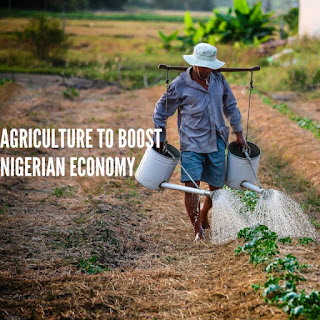With an inclusive agricultural policy, Africa can feed itself and create millions of Jobs by farouk Gumel
In Africa, agriculture remains the key link that connects the affluent urban centres to the poorer rural areas. What does this mean you ask? Well, Africa’s growing middle class (entrepreneurs or salaried staff) live in its urban centres. They spend a sizable amount of their income on food. But due to Africa’s reliance on food imports, these funds are sent overseas thereby creating jobs abroad. As the urban consumer patronises imported food items, the rural farmer is, for the lack of a better word, excluded from Africa’s prosperity story. The African Development Bank (AfDB) estimates that Africa’s food import bill will rise to over$110 billion by 2025.
Realistically, no nation or region can fully eliminate food importation. But African can surely reduce it as the continent has the labour and the arable land needed to meet most of its needs. If Africa were to halve its food import by 2025, some of$55 billion which would have been sent overseas will be injected directly into Africa’s rural economy on an annual basis. This spending will link Africa’s urban consumer with his rural counterpart who produces grains and other non-exportable agricultural products. By doing this, the rural farmer is now included in Africa’s prosperity story.
A lot of the migration trends we are seeing within Africa (rural to urban) are mostly due to the exclusion of Africa’s rural farmers for the continent’s prosperity story. It is a fact that until recently, agricultural policies in most African countries have focused on the export value chain (cocoa, cashew, sesame). Now, we are seeing more backward integration policies on food grain production (rice, maize, meat). These policies leverage Inclusive Value Chain Development (IVCD) to enhance local food production while restricting imports.
In countries like Senegal, Mali and Nigeria, the IVCD approach is gaining traction as it links small scale producers to other value chain actors mostly in urban areas thereby guaranteeing offtake. This approach is leading to a gradual increase in rural farmer income. Many processing companies utilizing these rural supply chains have also introduced women empowerment programs, yield enhancement techniques and other sustainability projects which are further enhancing productivity and working conditions.
Many companies such as Dangote, Bua Group, Olam, Flour Mills Nigeria and TGI Group are aggressively investing in the IVCD approach. Farouk Gumel of TGI says his company has invested millions of dollars in out grower farming programs for rice paddy, soya beans and maize in Nigeria. These programs supply raw materials to TGI’s rice mill, multi seed oil crushing facilities and poultry farms.
Farouk Gumel states that through these investments, the TGI’s rural outgrower farmers receive quality inputs, training in modern farming techniques and a guaranteed offtake of their produce while the factories have a guaranteed and consistent supply of raw materials. These programs, which are supported by strong fiscal and monetary policies, have re energised the rural farming communities TGI operates by creating jobs and increasing farmer income while achieving import substitution of essential food items.
It is not clear how the African Continental Free Trade Agreement (AfCFTA) would impact these IVCD initiatives. But we hope this approach will be sustained and enhanced to fully harness Africa’s most valuable resources – a youthful energetic population and plentiful arable land.
Farouk Gumel is an Executive Director at TGI Group, a pan African conglomerate with investments across key agricultural value chains.
More Blogs
Farouk Gumel – The Role of Agriculture in the Economic Development of Nigeria
Viewpoint: The Future of Work in Agri-Food – Farouk Gumel




Comments
Post a Comment